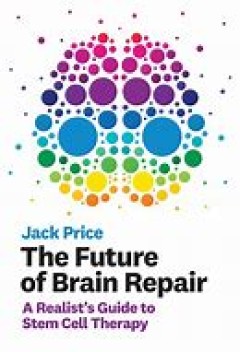Filter by

The future of brain repair :a realist's guide to stem cell therapy The Future…
"The Ultimate Therapy addresses the question: will stem cells bring about new, effective therapies for brain disorders? Stem cell therapies are the subject of enormous hype. The International Society for Stem Cell Research notes the 'near magical hold' that stem cell therapies have over patients' imaginations. This is not healthy. The intention with this book is to try to introduce some realism…
- Edition
- -
- ISBN/ISSN
- 9780262357890
- Collation
- 1 online resource.
- Series Title
- -
- Call Number
- -

The entangled brain :how perception, cognition, and emotion are woven together
"A general overview of the systems neuroscience approach written by a leading figure in the field"--OCLC-licensed vendor bibliographic record.
- Edition
- -
- ISBN/ISSN
- 9780262372107
- Collation
- 1 online resource
- Series Title
- -
- Call Number
- -

Neurolinguistics
"A short, reader-friendly introduction to the neuroscientific study of language. Written by an emerging star in the field"--OCLC-licensed vendor bibliographic record.
- Edition
- -
- ISBN/ISSN
- 9780262368155
- Collation
- 1 online resource.
- Series Title
- -
- Call Number
- -

The mindconsciousness, prediction, and the brain
An accessible and engaging account of the mind and its connection to the brain. The mind encompasses everything we experience, and these experiences are created by the brain--often without our awareness. Experience is private; we can't know the minds of others. But we also don't know what is happening in our own minds. In this book, E. Bruce Goldstein offers an accessible and engaging account o…
- Edition
- -
- ISBN/ISSN
- 9780262358774
- Collation
- 1 online resource
- Series Title
- -
- Call Number
- -

Emergent brain dynamics :prebirth to adolescence
Experts explore the maturation of nonlinear brain dynamics from a developmental perspective and consider the relationship of neurodevelopmental disorders to early disruption in dynamic coordination.OCLC-licensed vendor bibliographic record.
- Edition
- -
- ISBN/ISSN
- 9780262348591
- Collation
- 1 online resource (xi, 324 pages) :illustrations (chiefly color)
- Series Title
- -
- Call Number
- -

Changing connectomes :evolution, development, and dynamics in network neurosc…
"An overview of how networks develop in the brain; from their emergence during early development to normal aging and in the presence of neurodevelopmental and neurodegenerative disorders"--OCLC-licensed vendor bibliographic record.
- Edition
- -
- ISBN/ISSN
- 0262360829
- Collation
- 1 online resource.
- Series Title
- -
- Call Number
- -

What is health? :allostasis and the evolution of human design
An argument that health is optimal responsiveness and is often best treated at the system level.OCLC-licensed vendor bibliographic record.
- Edition
- -
- ISBN/ISSN
- 9780262356299
- Collation
- 1 online resource (240 pages).
- Series Title
- -
- Call Number
- -

Language in our brain :the origins of a uniquely human capacity
A comprehensive account of the neurobiological basis of language, arguing that species-specific brain differences may be at the root of the human capacity for language.OCLC-licensed vendor bibliographic record.
- Edition
- -
- ISBN/ISSN
- 9780262342964
- Collation
- 1 online resource
- Series Title
- -
- Call Number
- -

Intervention in the brain :politics, policy, and ethics
The political and policy implications of recent developments in neuroscience, including new techniques in imaging and neurogenetics. New findings in neuroscience have given us unprecedented knowledge about the workings of the brain. Innovative research--much of it based on neuroimaging results--suggests not only treatments for neural disorders but also the possibility of increasingly precise an…
- Edition
- -
- ISBN/ISSN
- 0262313731
- Collation
- 1 online resource (370 pages).
- Series Title
- -
- Call Number
- -

Toward brain-computer interfacing
"A Bradford book."This volume presents a timely overview of the latest BCI research, with contributions from many of the important research groups in the field.OCLC-licensed vendor bibliographic record.
- Edition
- -
- ISBN/ISSN
- 0262256045
- Collation
- 1 online resource (xii, 507 pages) :illustrations.
- Series Title
- -
- Call Number
- -
 Computer Science, Information & General Works
Computer Science, Information & General Works  Philosophy & Psychology
Philosophy & Psychology  Religion
Religion  Social Sciences
Social Sciences  Language
Language  Pure Science
Pure Science  Applied Sciences
Applied Sciences  Art & Recreation
Art & Recreation  Literature
Literature  History & Geography
History & Geography